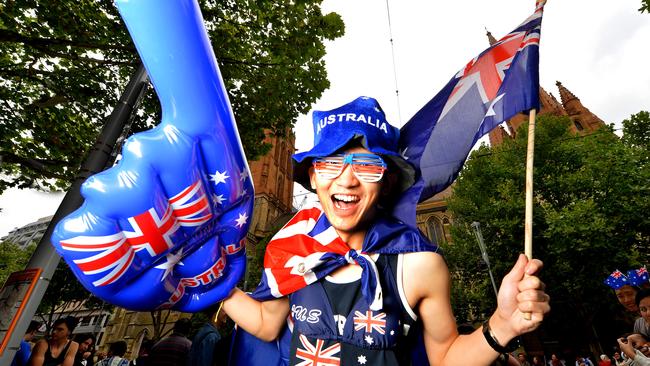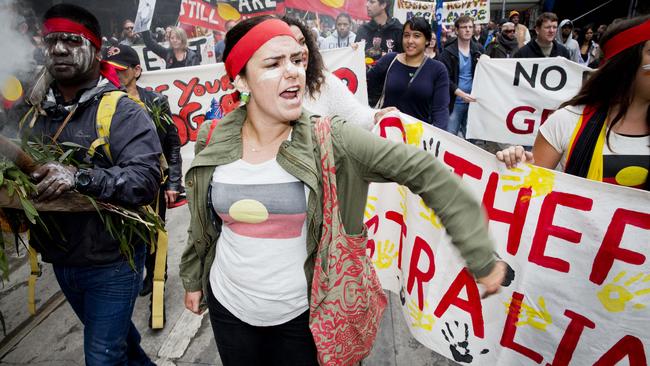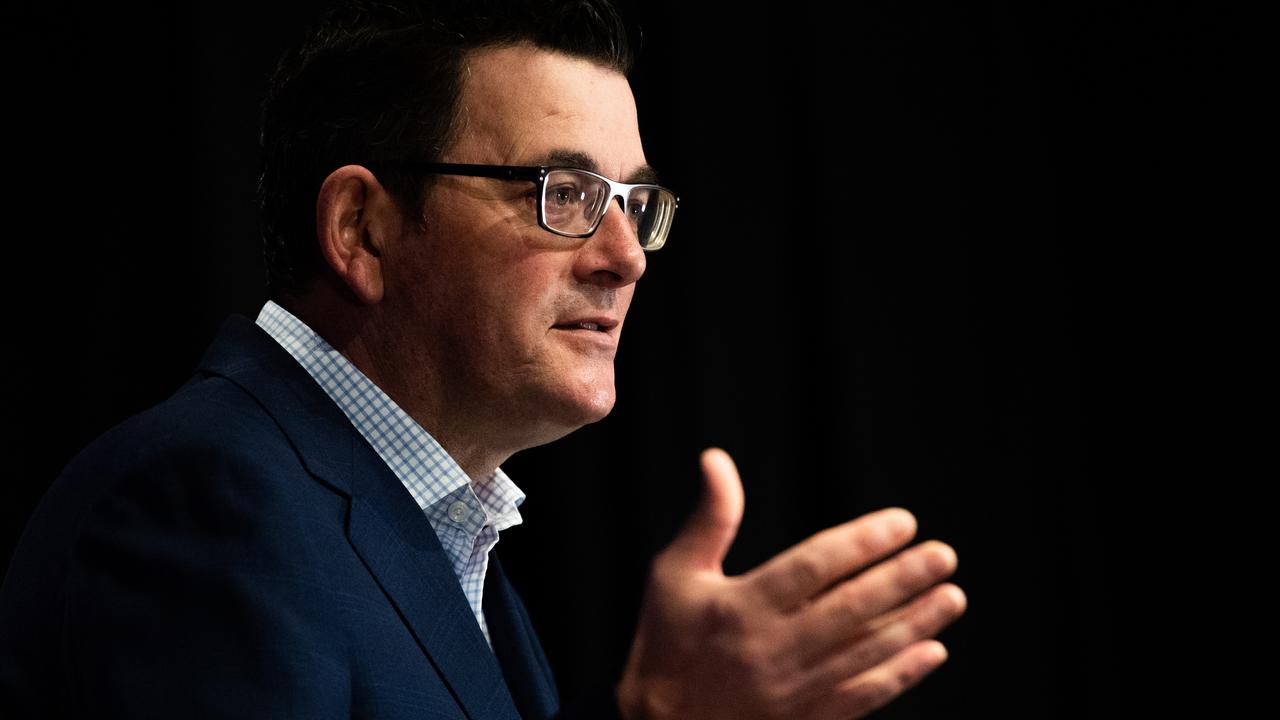Australia Day is a day to give thanks and take pride in our country
I AM never more grateful to call Australia home than when I compare my son’s childhood with my own in the Islamic Republic of Iran, writes Rita Panahi.

Rita Panahi
Don't miss out on the headlines from Rita Panahi. Followed categories will be added to My News.
I AM never more grateful to call Australia home than when I compare my son’s childhood with my own in the Islamic Republic of Iran.
As I watched him take part in an Australia Day parade, I couldn’t have been any prouder or happier to call myself an Australian.
It was all so far removed from my early childhood in a country that had gone from being relatively modern and secular to being a war-torn Islamist hellhole.
One of my strongest memories of life in Iran is lining up with my classmates and chanting “marg bar Amrika”, meaning “death to America”, over and over again.
At the tender age of six I was not only being indoctrinated to hate but was being forced to observe modesty laws by wearing a hijab or chador.
I loathed both the brainwashing and the mandatory Muslim garb in equal measure: the former, because I was born in the US, had family there and knew it was not the ‘Great Satan’ nation that the mullahs and my teachers claimed it to be; the latter, because the veils were often uncomfortable, particularly in the heat, and I couldn’t for the life of me understand why I was suddenly forced to cover up while the boys I knew could carry on as before.
Other vivid memories are of the Iraq-Iran war; the air raid sirens, the tape on our windows, and feeling a mixture of fear and awe whenever warplanes were nearby.
All that changed when we moved to Australia. Perhaps you need to have lived in a despot nation to appreciate the freedoms that in the West are taken for granted. That’s one reason I’ve never been a fan of blanket immigration bans from problem countries.
Donald Trump’s 90-day travel ban imposed on people from seven Muslim-majority nations is derided by the commentariat but is popular among the electorate. It would be just as popular in Australia.
But it’s worth remembering that most migrants have enormous pride in this country. We are among the most peaceful, cohesive, prosperous and democratic corners of the world. That is something to be enormously proud of.

Yet these days, pride in Australia is frowned upon by whiny activists in the media, academia, and a plethora of other publicly funded organisations.
The self-loathers among us, most of them born and bred here, love to portray this inclusive country as some hellish backwater born of genocide and teeming with racist, sexist, homophobic, Islamophobic, transphobic bigots.
I have never understood the unrelenting desire of the Left to trash their own country, resorting to falsehoods and hyperbole to push an anti-Australia agenda.
There is no noble purpose to their antics that can justify the enormous damage they do to Australia’s reputation.
Nothing infuriates these ne’er-do-wells more than Australia Day, where multiple grievances, the flag, the monarchy and particularly “invasion” combine for one almighty outrage orgy.
It wasn’t just the ABC, Fairfax, Guardian et al in full-blown “Invasion Day” meltdown. The New York Times also joined in the fun this year with a piece called “Every year on January 26 white Australians celebrate genocide”.
The Times is making a habit of publishing irrational pieces that portray Australia as some irredeemably cold-hearted and racist country. On Boxing Day, it ran an error-riddled column from a Fairfax journalist about supposed rampant racism in the Australian cricket team.
Of course, the journalist could produce no examples, but nevertheless wrote that racist remarks are “routine”.
The truth is that Australia Day is celebrated by people from all walks of life, including the original Australians and the newest Australians.
Most ignore the media narrative and reject the black armband view of Australia’s history.
It must have devastated the miserable malcontents at the Guardian that an Australia Day poll they commissioned showed most want to retain January 26 as our national day. Only 15 per cent supported changing the date, and of the migrants surveyed only 13 per cent wanted this. Even among indigenous Australians, only 31 per cent felt negative about Australia Day, while 53 per cent supported changing the date.
Given the biased media coverage, you could be forgiven for thinking that every indigenous Australian was vehemently against the national day.
It’s time we listened to a broader range of indigenous voices from around the country rather than just to the loudest activists in inner-city Melbourne and Sydney.
For me, Australia Day is a day to give thanks.
Our own Thanksgiving, if you will — only with better food.
9 FREE AUSTRALIA DAY ACTIVITIES IN MELBOURNE
Rita Panahi is a Herald Sun columnist



